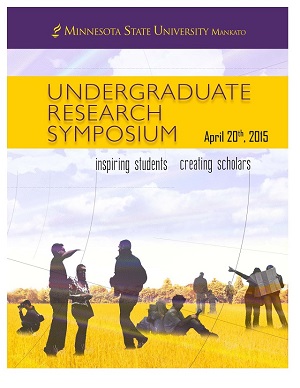Assessment of Occupational Burnout and Stress Coping Mechanisms among Christian Clergy Members
Location
CSU Ballroom
Start Date
20-4-2015 2:00 PM
End Date
20-4-2015 3:30 PM
Student's Major
Health Science
Student's College
Allied Health and Nursing
Mentor's Name
Joseph Visker
Mentor's Email Address
joseph.visker@mnsu.edu
Mentor's Department
Health Science
Mentor's College
Allied Health and Nursing
Description
Occupational burnout has been well documented among those serving in various roles throughout the Christian Ministry. Unfortunately, ministers from certain Christian denominations have been under-represented. Further, few studies have examined how ministers cope with the various ministry-related stressors. A state-wide survey was conducted among clergy members serving within the Assemblies of God church in Minnesota to assess current levels of occupational burnout and the extent to which selected coping mechanisms are used to mitigate stress. Two previously validated self-report instruments were used to quantify levels of burnout and measure the use of 15 coping mechanisms. A total of 52 useable surveys were collected from clergy members serving in roles ranging from Senior Pastor to Missionary. A total of 65.40% of the sample was found to be bordering on burnout or experiencing some level of burnout. The most commonly noted coping strategies used among the sample included “Religious Coping” and “Planning”. Differences in coping strategy use were found between those who are and are not experiencing some level of burnout. Implications for health education will be discussed.
Assessment of Occupational Burnout and Stress Coping Mechanisms among Christian Clergy Members
CSU Ballroom
Occupational burnout has been well documented among those serving in various roles throughout the Christian Ministry. Unfortunately, ministers from certain Christian denominations have been under-represented. Further, few studies have examined how ministers cope with the various ministry-related stressors. A state-wide survey was conducted among clergy members serving within the Assemblies of God church in Minnesota to assess current levels of occupational burnout and the extent to which selected coping mechanisms are used to mitigate stress. Two previously validated self-report instruments were used to quantify levels of burnout and measure the use of 15 coping mechanisms. A total of 52 useable surveys were collected from clergy members serving in roles ranging from Senior Pastor to Missionary. A total of 65.40% of the sample was found to be bordering on burnout or experiencing some level of burnout. The most commonly noted coping strategies used among the sample included “Religious Coping” and “Planning”. Differences in coping strategy use were found between those who are and are not experiencing some level of burnout. Implications for health education will be discussed.
Recommended Citation
Rider, Taylor and Anastasia June Humphers-Ginther. "Assessment of Occupational Burnout and Stress Coping Mechanisms among Christian Clergy Members." Undergraduate Research Symposium, Mankato, MN, April 20, 2015.
https://cornerstone.lib.mnsu.edu/urs/2015/poster_session_B/27




